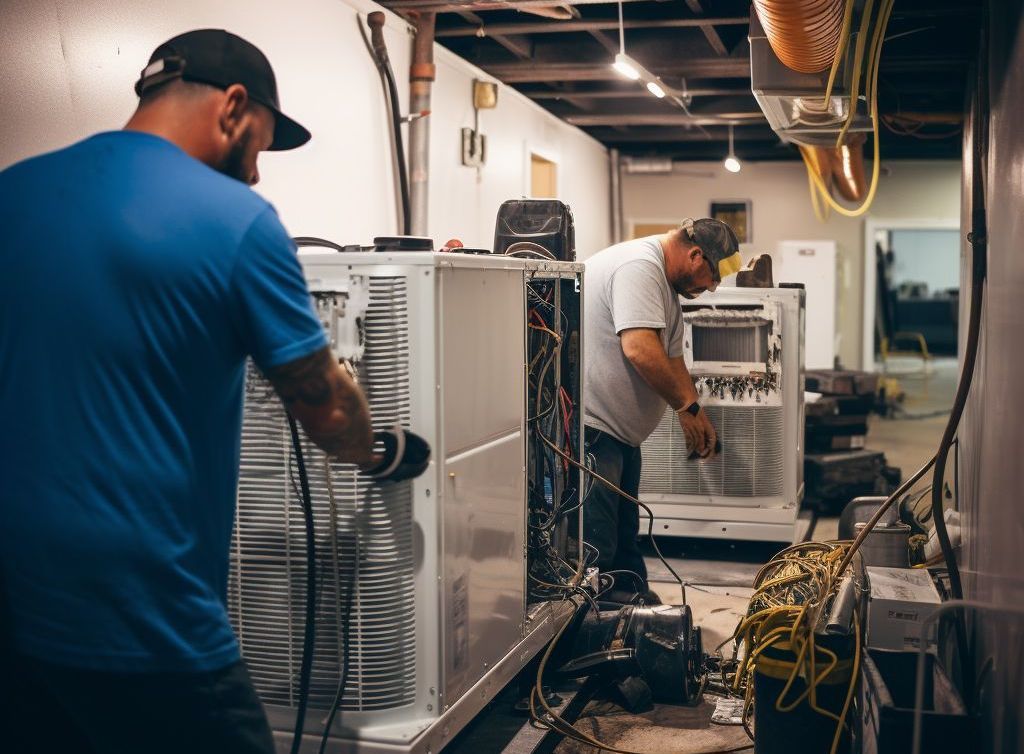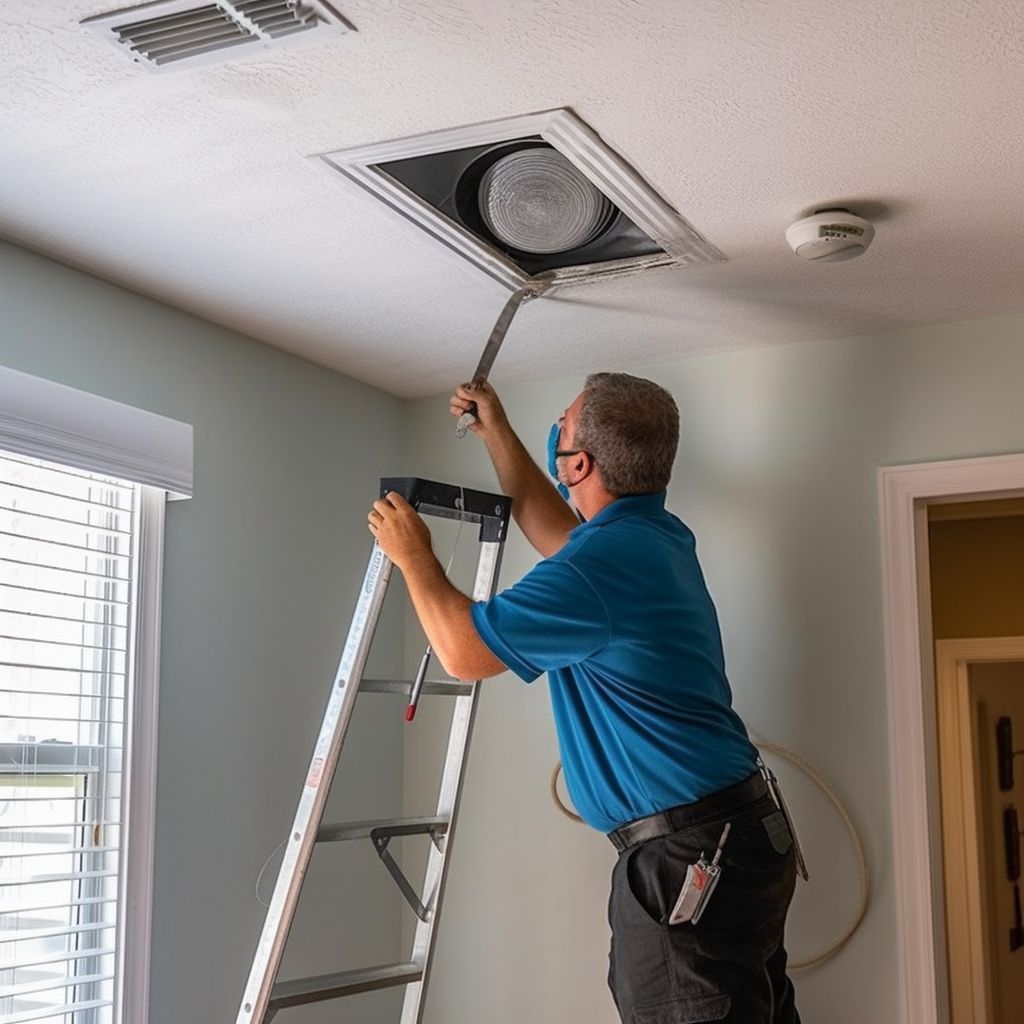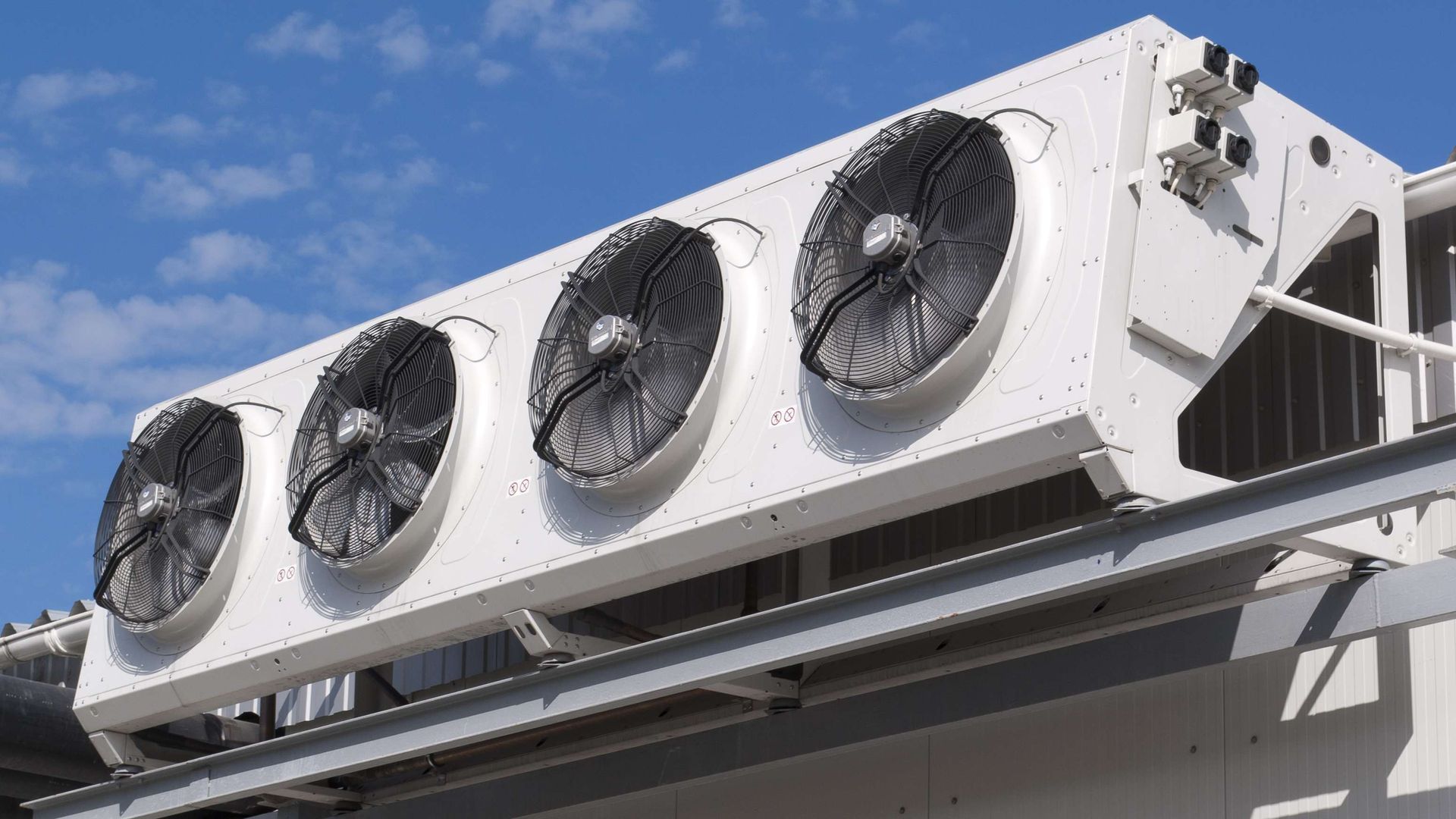HVAC System Types: Central, Split, Forced Air, & Radiant Heat

Choosing the right HVAC system for your home isn't just about keeping cool in summer or warm in winter; it's about enhancing your comfort, optimizing energy efficiency, and ensuring that your living environment suits your lifestyle. With so many options available, it can be overwhelming to decide between systems like central air conditioning vs. split system, or forced air vs. radiant heat. Each has its unique advantages and is suited to different types of homes and climates.
In this comprehensive guide, we'll dive deep into the world of HVAC systems, comparing central air conditioning to split systems, and forced air heating to radiant heat. By understanding these systems' benefits, you can make an informed decision that aligns with your needs, home layout, and budget. So, whether you're building a new home, upgrading your current system, or simply curious about your options, keep reading to find the perfect HVAC solution for you.
Central Air Conditioning Systems
Central air conditioning systems are designed to cool your entire home through a network of ducts, providing a uniform temperature throughout. These systems consist of a central unit that cools the air, which is then circulated through ducts to each room. Central air conditioners are ideal for homeowners looking for a consistent climate control solution across large spaces.
Benefits of Central Air Conditioning
- Whole-Home Cooling: One of the primary advantages of central air conditioning is its ability to cool every room in your home evenly, eliminating hot spots and ensuring comfort no matter where you are in the house.
- Integrated Heating Option: Many central systems can be combined with heating capabilities, offering a seamless solution for year-round climate control.
- Air Quality Improvement: Central air systems often come with advanced filtration systems that can significantly improve indoor air quality, capturing dust, pollen, and other airborne particles.
Central air conditioning systems are a popular choice for many homeowners due to their efficiency and effectiveness in providing uniform cooling and improved air quality across the entire home. However, the need for ductwork can make them more suitable for new constructions or homes where ducts are already present.
Split System Air Conditioners
Split system air conditioners consist of two main parts: an outdoor unit that houses the compressor and condenser, and one or more indoor units that distribute cool air. These systems are called "split" because they are divided into outdoor and indoor components. They are an excellent option for homes without existing ductwork, offering flexibility in cooling specific areas or "zones" within the home.
Benefits of Split System Air Conditioning
- Installation Flexibility: Split systems can be installed in homes without the need for extensive ductwork, making them ideal for retrofitting older homes or extending air conditioning to new additions.
- Zone Cooling Capability: With the ability to control temperatures in individual rooms, split systems offer personalized comfort and can lead to energy savings by cooling only the areas in use.
- Energy Efficiency: Modern split system air conditioners are designed for high efficiency, often leading to lower energy consumption compared to traditional central air systems, especially in homes where full-house cooling isn't necessary.
Split system air conditioners provide a versatile and efficient solution for cooling homes, particularly those where ductwork installation is not feasible or desired. Their energy-efficient operation and ability to provide targeted cooling make them a favorite among homeowners looking to customize their comfort and control their energy costs.
Forced Air Heating Systems
Forced air heating systems use a furnace to heat air, which is then distributed throughout the home via a network of ducts and vents. These systems are common in many homes because they can efficiently distribute warm air, maintain consistent temperatures, and even filter and humidify the air as it circulates. A key component of these systems is the thermostat, which allows homeowners to control the temperature and maintain a comfortable indoor environment.
Benefits of Forced Air Heating
- Quick Heating: One of the most significant advantages of forced air systems is their ability to heat spaces quickly. Once the furnace heats the air, it's immediately pushed through the ductwork, rapidly warming the entire home.
- Air Filtration and Humidification: Many forced air heating systems come with built-in filters that help improve indoor air quality by trapping dust, allergens, and other particles. Additionally, humidifiers can be integrated into these systems to maintain comfortable humidity levels, especially in dry climates.
- Compatibility with AC: Forced air systems can often be combined with central air conditioning units, making it easier to have a single system for both heating and cooling. This integration can be a cost-effective and space-saving solution for year-round climate control.
Forced air heating systems are known for their efficiency and versatility, providing quick, comfortable heat while improving indoor air quality. Their compatibility with air conditioning systems also makes them an attractive option for homeowners looking for a comprehensive climate control solution.
Radiant Heat Systems
Radiant heat systems offer a different approach to heating your home, focusing on warming floors or panels in the walls or ceilings, which then radiate heat throughout the space. This method can be more efficient than traditional forced air systems because it minimizes the loss of heat and provides a uniform temperature from floor to ceiling. Radiant heating can be powered by electricity, hot water, or air, though hot water (hydronic) systems are the most common and efficient for whole-home heating.
Benefits of Radiant Heat
- Even and Comfortable Heat: Radiant systems distribute heat evenly across the floor, eliminating cold spots and providing a consistently comfortable environment. This method of heating keeps the warmth at the level where people actually live and spend their time, rather than heating the upper half of the room first.
- Energy Efficiency: Because radiant heating directly warms objects and people, rather than heating the air, it can be more efficient, especially in well-insulated homes. There's less heat loss through air movement, making it a smart choice for those looking to reduce energy costs.
- Aesthetics and Health: Radiant heating systems are hidden beneath the floor, making them invisible and not taking up any living space. They operate silently and don't circulate dust and allergens like forced air systems, contributing to a healthier indoor environment.
Radiant heat systems are an excellent option for new construction and for homeowners prioritizing efficiency, comfort, and aesthetic appeal. While the initial installation can be more costly and complex than other heating methods, the long-term benefits of comfort, efficiency, and reduced allergen circulation make radiant heating a compelling choice for many.
Conclusion
Choosing the right HVAC system for your home is a critical decision that impacts not just your comfort but also your wallet and health. Whether you lean towards the whole-home uniformity of central air conditioning, the flexibility of split system air conditioners, the quick and efficient warmth of forced air heating, or the even, comfortable heat of radiant systems, understanding the benefits of each can help you make an informed decision. Remember to consider your home's specific needs, layout, and your personal preferences when selecting an HVAC system.
Looking for a trusted HVAC expert in South Jordan, UT? Choose Hill Heating and Air! Owned by Steve Hill, we're dedicated to providing unparalleled AC and heating services across Provo to Ogden. Our team offers expert repair, installation, and maintenance to ensure your comfort year-round. With years of experience and a commitment to excellent service, we guarantee efficient solutions tailored to your needs. For top-notch HVAC care, turn to Hill Heating and Air and experience exceptional service and reliability. Contact us today!
Contact Us
Contact Us
We will get back to you as soon as possible.
Please try again later.
HILL HEATING & AIR, LLC
South Jordan, UT 84095
CALL US
Phone: (801) 860-0655
HOURS | 24/7 AFTER HOURS AND WEEKENDS
- Mon - Fri
- -
- Sat - Sun
- Closed
HILL HEATING & AIR, LLC
Salt lake city , UT 84130 United States of America
CALL US
Phone: (801) 860-0655
HOURS | 24/7 AFTER HOURS AND WEEKENDS
- Mon - Fri
- -
- Sat - Sun
- Closed
Copyright © 2023 Hill Heating & Air, LLC, all rights reserved.






